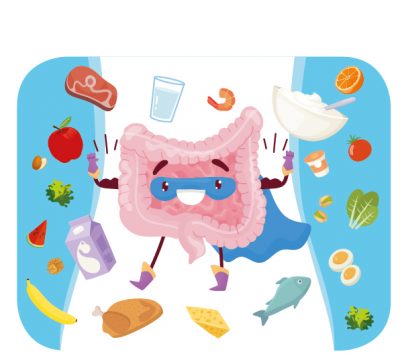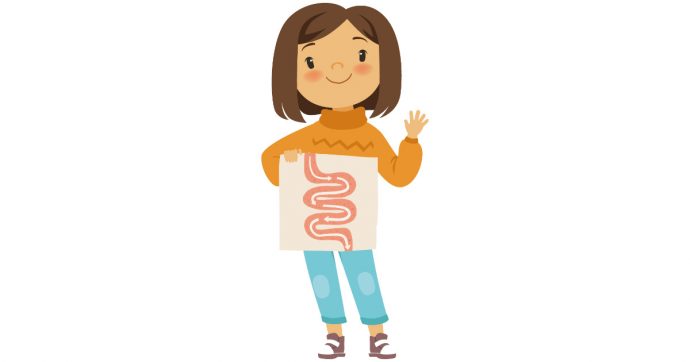Better digestion leads to more efficient nutrient absorption, which contributes to optimal growth and development. This is also essential to maintain healthy body functions and strong immunity.
One key aspect of good digestive health is efficient nutrient absorption. While the majority of this process happens in the small intestine, it begins in the mouth with the first bite. To ensure that children get the most nutrients from the food they are consuming and to avoid nutrient deficiencies, the nutrient absorption process has to be efficient.
Good digestion and nutrient absorption are crucial for optimal growth and development, as well as optimal body functions. In fact, a huge part of the immune system is housed in the gut. So, it is important to make sure that your child’s digestive health is in the top condition for his or her overall health.
Factors influencing nutrient absorption
Bioavailability of nutrients: This refers to the proportion of nutrients from food that is absorbed, utilised and stored by the body. The bioavailability of different nutrients depends on various factors that can either enhance or inhibit its bioavailability, such as the:
- Physical form of the food (e.g. raw, cooked, chopped, processed)
- Chemical form of the nutrient (e.g. heme iron from animal sources is easier to be absorbed compared to non-heme iron)
- Nutrient concentration
- Interaction with other nutrients or compounds in foods (e.g. Maillard reaction reduces protein digestibility)
Medications and health: Certain medications like laxatives can interfere with the nutrient absorption process. Being sick, stressed or immobile may also affect nutrient absorption.
Individual variables: Age, gender, genetics, nutritional status, diet, pregnancy, lifestyle – all these factors can affect nutrient absorption. For instance, the level of gastric acid will decline as we age, and hence, our ability to absorb nutrients follows suit. In contrast, children’s gut tends to be more sensitive, which can also affect digestion and absorption.

Boosting nutrient absorption
A healthy digestive system is important for efficient nutrient absorption and vice versa. Here are some ways to promote digestion and boost nutrient absorption in your child:
- Balanced and varied diet: The key to obtaining all the nutrients needed by the body is to eat a variety of food in balanced proportions. Include various colourful vegetables and fruits in your child’s diet to get different types of nutrients. Try different varieties of proteins, from nuts and legumes, fish and seafood, as well as poultry and meat.
- Go for less processed foods: Highly-processed foods tend to be higher in refined carbs, food additives and trans-fats, which may negatively affect digestive health. Prepare fresh and whole foods for your family, e.g. by making your own chicken nuggets, instead of buying fast food or ready-made products.
- Choose nutrient-dense foods: Nutrient-dense foods are important to provide essential nutrients to fulfil the recommended nutrient intake for children’s optimal growth. Opt for more nutrient-dense foods such as fruits, vegetables, whole grains, milk and dairy products.
- Increase fibre and good fat: Fibre is beneficial for digestive health and can be obtained from grains, nuts, seeds, fruits and vegetables. Meanwhile, good fats (unsaturated fats in fatty fishes, nuts and seeds) are essential for proper nutrient absorption of some vitamins.
- Prepare foods with suitable methods: Foods need to be prepared and cooked in the right manner to retain nutrients. Don’t overcook green leafy vegetables or soak them for too long in water as excessive heat treatment will cause nutrient loss. In contrast, some vegetables like tomatoes have to be cooked to enhance nutrient absorption.
- Stay hydrated: Sufficient fluid intake is necessary for good digestion and to prevent constipation. Plain water, milk and water-rich fruits and vegetables are good sources of hydration. Encourage children to drink 6-8 glasses of water every day, or more on a hot day or after an intense physical activity.
- Eat and chew slowly: Chewing breaks down food into smaller pieces, while saliva in the mouth starts the digestion process. Advice your child to chew food thoroughly and slowly so that it’s easier for the body to absorb the nutrients in the small intestine.
- Be active: Regular physical activity is another way to improve digestion and promote healthy bowel movement. You can take a short walk with your child after a meal.
The best match
- Vitamin C and plant-based iron: Vitamin C helps increase the absorption of non-heme iron in plants. Tips: Pair your child’s breakfast of iron-rich wholegrain sandwiches with orange juice (source of vitamin C).
- Vitamin D and calcium: Vitamin D from food and sunlight helps boost calcium absorption. Tips: Play outdoors more often with your child, so they can get more vitamin D from sunlight. You can also pair foods offering vitamin D (salmon, tuna, egg yolk) with calcium-rich foods (broccoli, collard greens) for your family.
- Fat and fat-soluble vitamins: Vitamins A, D, E and K (fat-soluble vitamins) are more readily absorbed by the body when paired with fat. Tips: Opt for good unsaturated fats from olive oil, fatty fish, nuts and seeds, to complement food sources of fat-soluble vitamins.
On top of the advice recommended above, an easy and good strategy to remember is “balance, moderation and variety” in your diet. Then your child can eat healthily, grow healthily and live healthily!
An educational collaboration with Nutrition Society of Malaysia.






Comments